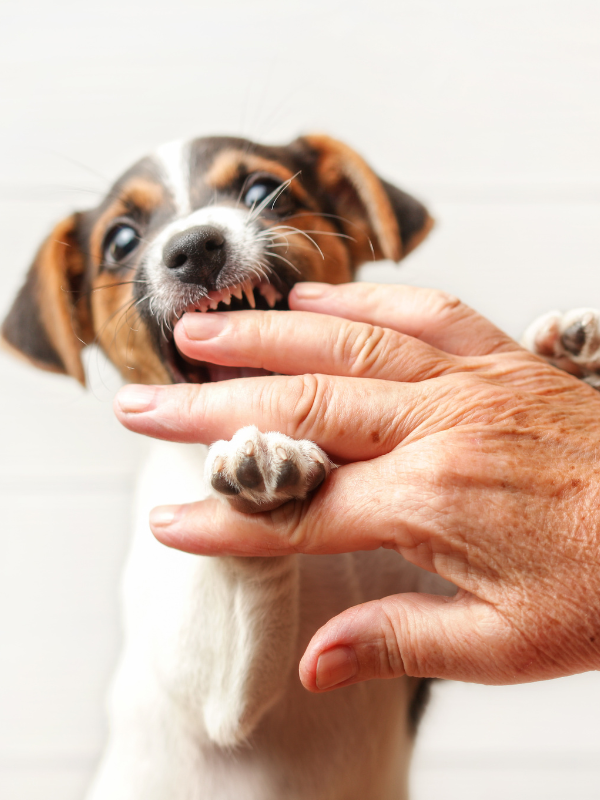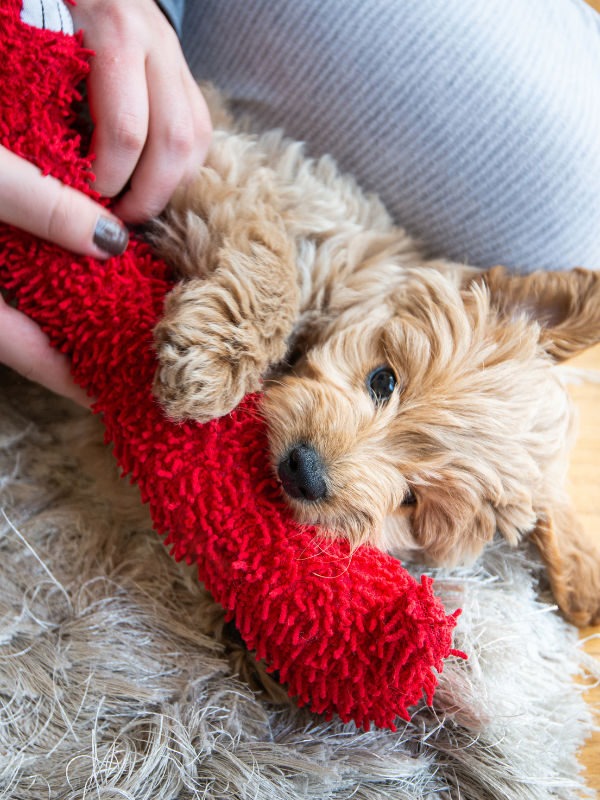737-215-3211

10 Proven Techniques to Curb Puppy Biting: Transform Your Furry Friend Into a Gentle Companion
Puppies are bundles of joy and energy, but sometimes that energy can lead to nipping and biting. These little nips, while not malicious, can be painful. Don't fret! There's a plethora of techniques to help curb this behavior.
The Basics of Puppy Biting
Did you know that biting is a natural behavior for puppies? It's how they explore the world. But, it's crucial to understand what's behind those sharp little teeth to address it effectively.
Teething: A Common Cause
Imagine the itchiness and discomfort a teething puppy must feel. Ouch! That’s why they constantly need to chew on something.
Play Biting: Innocent Yet Painful
Puppies often bite during play. It's like they're saying, “Hey, let’s have some fun!” But, without knowing their strength, this can hurt.
Nipping Biting in the Bud
Let's dive into prevention methods. Imagine this section as your toolbox against biting.
Puppy-Proofing Your Home
You wouldn’t leave a toddler in a room full of sharp objects, would you? Similarly, remove objects that might encourage biting.
Biting Inhibition Training
Teach your puppy to control the force of its bite. This is like putting an internal “brake” on those little jaws.
Teaching Alternatives to Biting
Why not teach your puppy what they should do instead?
The Power of Toys
Remember how puppies love to chew? Provide an arsenal of chew toys. It's like giving a baby a teething ring!
Teaching Soft Mouth
If a puppy does bite, teach them to do it gently. This involves acting as if you’re in immense pain even if the bite was soft. They’ll soon catch on.
Positive Reinforcement
Who doesn’t love praise and treats? Reward your puppy when they make the right choice. They’ll think, “I’m onto something good here!”
When to Consult a Professional
Not all biting issues can be solved alone. Sometimes, it’s best to call in the big guns.
Recognizing Aggressive Behavior
If your puppy's biting is accompanied by growling or snarling, this could be a sign of aggression. It's time to call a professional.
The Role of a Dog Trainer
A skilled dog trainer can be a godsend. They have the experience and knowledge to deal with various behaviors, including biting.
Strengthening Your Bond
This is the emotional glue that holds everything together.
The Importance of Socialization
Like humans, puppies need social interaction. Expose them to different environments, people, and pets. It’s like sending them to preschool!
Establishing Trust
Trust is the cornerstone of any relationship. Consistently show them that you’re there for them, and they’ll reciprocate.
Turning Your Bitey Puppy into a Gentle Companion
Puppy biting is a phase that, with patience and the right techniques, will pass. The tips and methods in this article can turn the biting issue around and help form an unbreakable bond with your fluffy friend.
Frequently Asked Questions
-
Why is my puppy biting me aggressively?
- It could be due to fear, possession aggression, or lack of socialization. Consulting a professional is advisable.
-
Are certain breeds more prone to biting?
- Some breeds have a natural tendency to nip, especially herding breeds. However, any puppy can exhibit this behavior.
-
How long does the biting phase last?
- It varies, but usually diminishes as they lose their puppy teeth and learn bite inhibition, around 6-7 months old.
-
What should I avoid doing when training my puppy not to bite?
- Avoid physical punishment and yelling, as this can make the behavior worse or make your puppy fearful.
-
Can older dogs be trained not to bite?
- Yes, though it might take more time compared to puppies. Consistency and patience are key.




Leave a comment